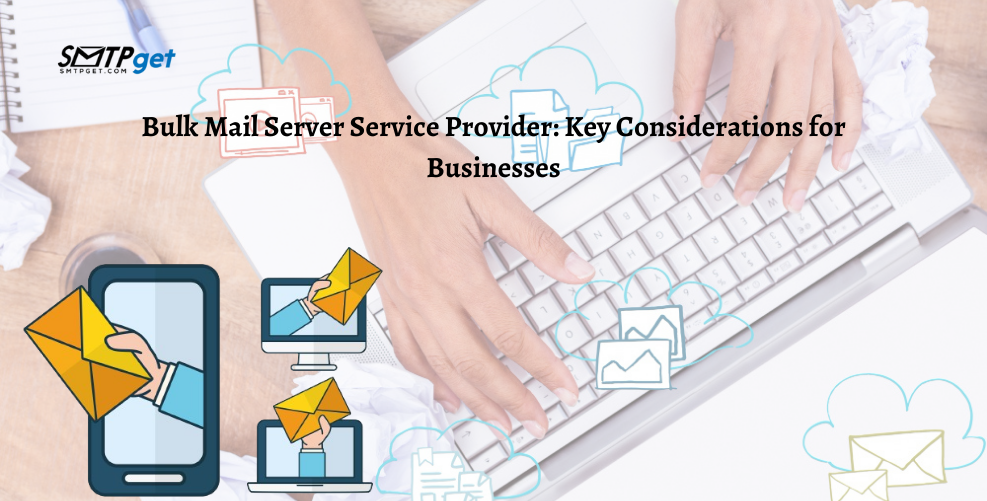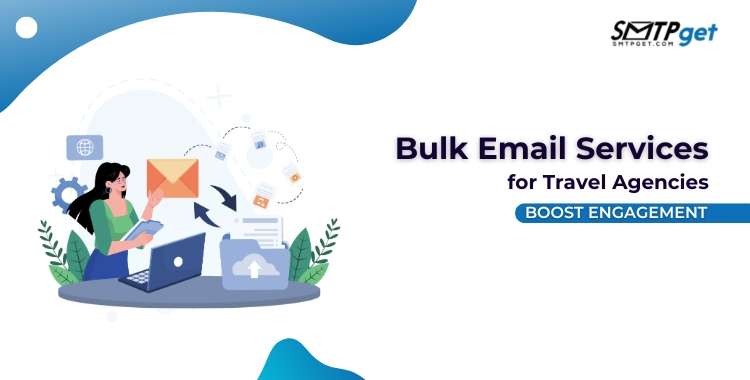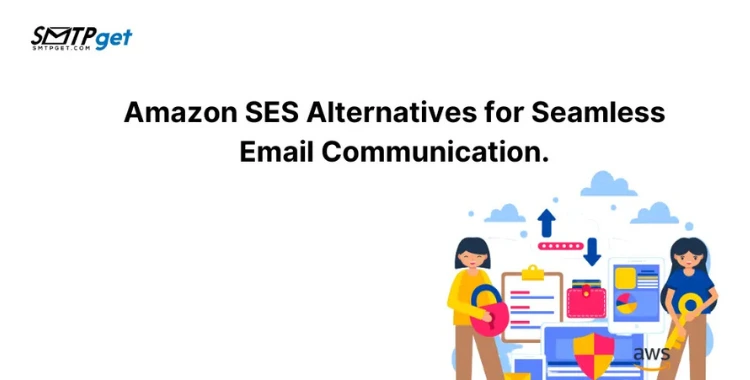Strong SMTP Server Provider is important for email communication in personal and professional domains. It ensures reliable email delivery, enhancing communication with clients, customers, and partners, and driving business success.

This is where SMTP service providers become essential. In this article, we will explore the significance of a Strong SMTP Server Provider and how it ensures reliable email delivery.
Importance of Strong SMTP Server Providers
Strong SMTP Server Providers are the backbone of email communication. They are responsible for transferring emails from the sender to the recipient’s email server. When you hit “Send” on an email, your email client communicates with the SMTP relay services to deliver the message.
A Strong SMTP server service ensures that your emails are sent efficiently and reliably, minimizing the chances of delivery failures or spam folder placement.
Our Pricing:
| Pricing | Cheapest Plan | Standard Plan | Professional Plan |
| SMTP Server Services | $110 | $165 | $220 |
| Bulk Email Server | $50 | $145 | $225 |
| Bulk Email Service | $30 | $110 | $220 |
Key Features of a Strong SMTP Server Provider
A reliable Strong SMTP server provider offers several key features that contribute to its strength:
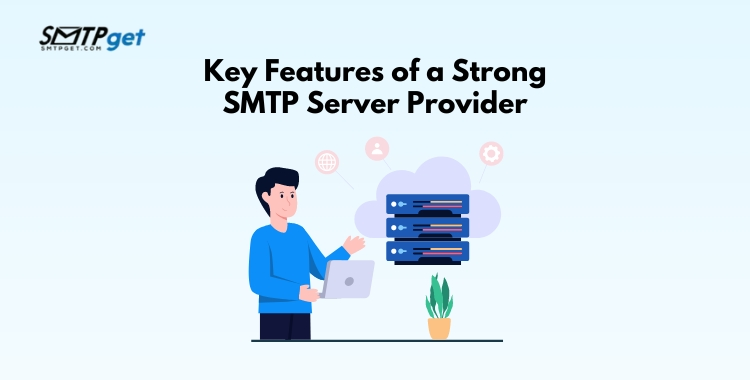
1. High Deliverability: A strong provider employs advanced delivery mechanisms to ensure that your emails reach the recipient’s inbox, rather than being flagged as spam or getting lost in transit.
2. IP Reputation Management: The provider maintains a positive IP reputation, which is crucial for email deliverability. A good reputation ensures that your emails are trusted by other email SMTP relay service providers and are less likely to be blocked.
3. Authentication Protocols: The Strong SMTP server supports industry-standard authentication protocols like SPF (Sender Policy Framework) and DKIM (DomainKeys Identified Mail). These protocols verify the authenticity of your emails, reducing the chances of them being marked as spam.
4. Scalability and Reliability: A strong SMTP relay service providers offer a scalable infrastructure that can handle high email volumes without compromising on delivery speed or reliability.
5. Strong Reporting and Analytics: The Powerful SMTP server offers comprehensive reporting and analytics tools to track email delivery, open rates, click-through rates, and other essential metrics.
Benefits of Using a Reliable SMTP Server Provider
Utilizing a reliable SMTP server provider offers numerous benefits:
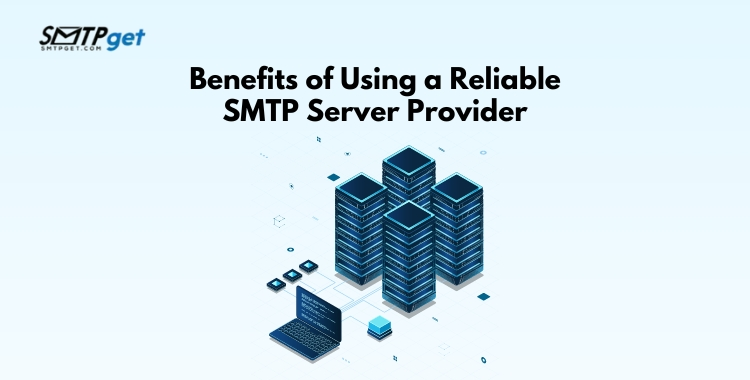
1. Improved Email Deliverability: With a Strong SMTP server service, your emails have a higher chance of reaching the recipients’ inboxes, ensuring effective communication.
2. Enhanced Email Security: A reliable provider employs encryption and authentication techniques to secure your emails, safeguarding sensitive information.
3. Optimized Email Performance: A strong SMTP server provider optimizes email delivery speed, ensuring timely communication with your audience.
4. Better Sender Reputation: By using a reputable provider, you maintain a positive sender reputation, establishing trust with other emails and Strong SMTP server service.
5. Cost and Time Savings: Outsourcing your email infrastructure to a reliable provider saves you the hassle of maintaining and managing your own server, reducing costs and saving valuable time.
How to Choose the Right SMTP Server Provider
When selecting a Powerful SMTP server service, consider the following factors:
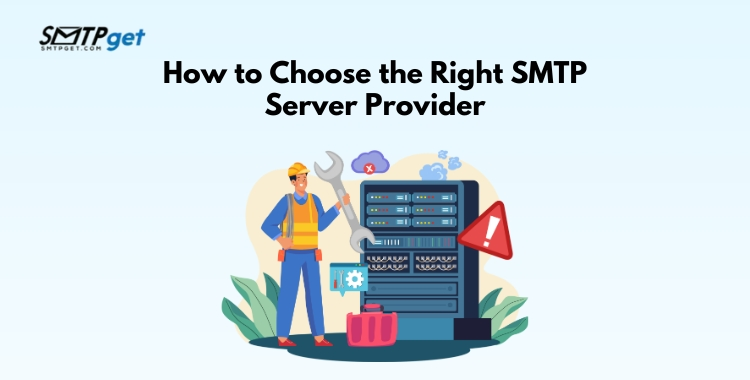
1. Reliability and Uptime: Choose a provider with a proven track record of providing reliable and consistent uptime for their Strong SMTP server services. Look for providers that offer service level agreements (SLAs) guaranteeing a certain percentage of uptime.
2. Deliverability Rates: Evaluate the deliverability rates of the Strong Smtp servers provider. Check if they have partnerships with major ISPs and email service providers to ensure optimal delivery to various email platforms.
3. IP Reputation Management: A reputable provider should have a strong focus on maintaining a positive IP reputation. Research their reputation management practices and inquire about their efforts to prevent blacklisting.
4. Scalability and Flexibility: Consider the scalability of the provider’s infrastructure. Ensure that their services can accommodate your email volume growth without compromising on delivery speed and reliability. Additionally, verify if they offer flexible plans to suit your specific needs.
5. Security Measures: Email security is crucial in protecting sensitive information. Look for providers that offer encryption, authentication protocols, and other security features to safeguard your emails.
6. Support and Customer Service: Reliable customer support is essential when it comes to troubleshooting issues or seeking assistance. Choose a provider that offers responsive support through various channels like live chat, email, or phone.
7. Integration and APIs: If you require seamless integration with your existing systems or applications, ensure that the provider offers compatible APIs and integrations that meet your requirements.
Setting Up and Configuring Your SMTP Server
Once you’ve chosen a reliable Strong SMTP server provider, the next step is to set up and configure your server. Most providers offer detailed documentation or guides to assist you in the setup process. Here are the general steps involved:
1. Create an Account: Sign up for an account with your chosen SMTP server provider and provide the necessary details.
2. Domain Verification: Verify your domain ownership by adding the required DNS records or following the provider’s verification process.
3. Configure SMTP Settings: Access your account’s SMTP settings and configure them in your email client or application. This usually involves specifying the server address, port number, authentication method, and other relevant details.
4. Testing and Troubleshooting: Send test emails to ensure that your server is set up correctly. If you encounter any issues, refer to the provider’s support documentation or contact their customer support for assistance.
Ensuring Email Deliverability and Inbox Placement
To maximize email deliverability and inbox placement, consider implementing the following best practices:
1. Maintain a Clean Email List: Regularly clean your email list to remove inactive or unengaged subscribers. This helps improve deliverability rates and reduces the likelihood of being marked as spam.
2. Personalise and Segment Emails: Tailor your email content based on your subscribers’ preferences and behavior. Segment your email list to send targeted and relevant messages, increasing engagement and reducing spam complaints.
3. Optimise Subject Lines and Content: Craft compelling subject lines and engaging content to entice recipients to open and interact with your emails. Avoid spammy or deceptive practices that can trigger spam filters.
4. Monitor and Analyze Performance: Continuously monitor your email delivery rates, open rates, click-through rates, and other relevant metrics. Analyze the data to identify areas for improvement and adjust your email strategies accordingly.
5. Follow Email Sending Guidelines: Adhere to email-sending guidelines and best practices set by ISPs and email service providers. This includes respecting unsubscribe requests, honoring user preferences, and avoiding sending unsolicited or irrelevant emails.
Securing Your SMTP Server
To ensure the security of your SMTP server and protect it from potential vulnerabilities, consider implementing the following measures:
1. Regular Updates and Patches: Keep your server software up to date by installing the latest updates and patches. This helps address any known security vulnerabilities.
2. Strong Authentication: Implement strong authentication protocols like SPF, DK IM, and DMARC to verify the authenticity of your emails and prevent spoofing or phishing attempts.
3. Firewall and Network Security: Configure firewalls and network security measures to restrict unauthorized access to your SMTP server. Utilise secure protocols such as SSL/TLS for encrypted communication.
4. Access Control and User Permissions: Implement strict access controls and user permissions to ensure that only authorized individuals can manage and use the SMTP server.
5. Monitoring and Logging: Set up monitoring and logging systems to track server activity and identify any suspicious or abnormal behavior. Regularly review logs for potential security breaches.
6. Backup and Disaster Recovery: Regularly back up your server’s data and configuration settings. Implement a disaster recovery plan to minimize downtime and data loss in the event of server failures or breaches.
Troubleshooting Common SMTP Server Issues
Despite using a reliable SMTP server provider, you may encounter occasional issues. Here are some common problems and troubleshooting steps:
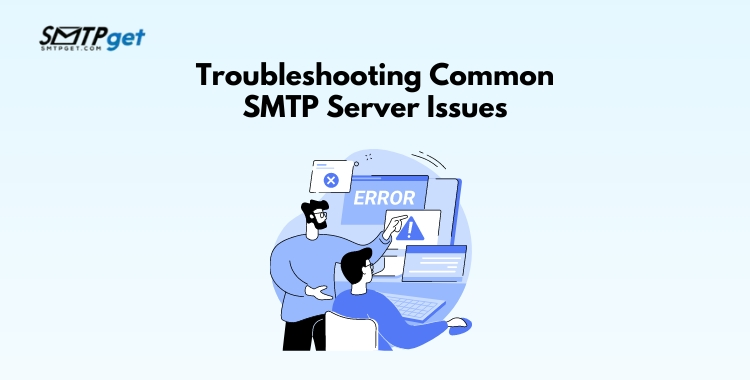
1. Delivery Failures: If emails are not reaching their intended recipients, ensure that the email addresses are correct and not blocked or blacklisted. Verify that your server’s IP reputation is maintained and that your emails comply with anti-spam policies.
2. Spam Folder Placement: If your emails are consistently landing in the recipient’s spam folders, review your email content for spam-like characteristics. Check if your server’s IP address is blacklisted and take steps to improve your sender reputation.
3. Slow Delivery or Queue Backlog: If there is a delay in email delivery or a backlog in the server’s email queue, investigate potential network issues or high server load. Contact your SMTP server provider for assistance in optimizing delivery speed.
4. Authentication Failures: If you are experiencing authentication failures, ensure that you have correctly configured the authentication settings in your email client or application. Double-check the usernames, passwords, and server settings.
5. Server Unavailability: In the event of server unavailability or downtime, check for any maintenance or server issues reported by your SMTP server provider. Follow their recommended troubleshooting steps or contact their support team for assistance.
Conclusion
A strong SMTP server provider is a crucial component in ensuring reliable email delivery. By choosing a reliable provider and following best practices, you can enhance email deliverability, security, and performance. Remember to regularly monitor and analyze your email metrics to make data-driven improvements.
By utilizing a strong SMTP server provider, you can streamline your email communication and build stronger connections with your audience.

